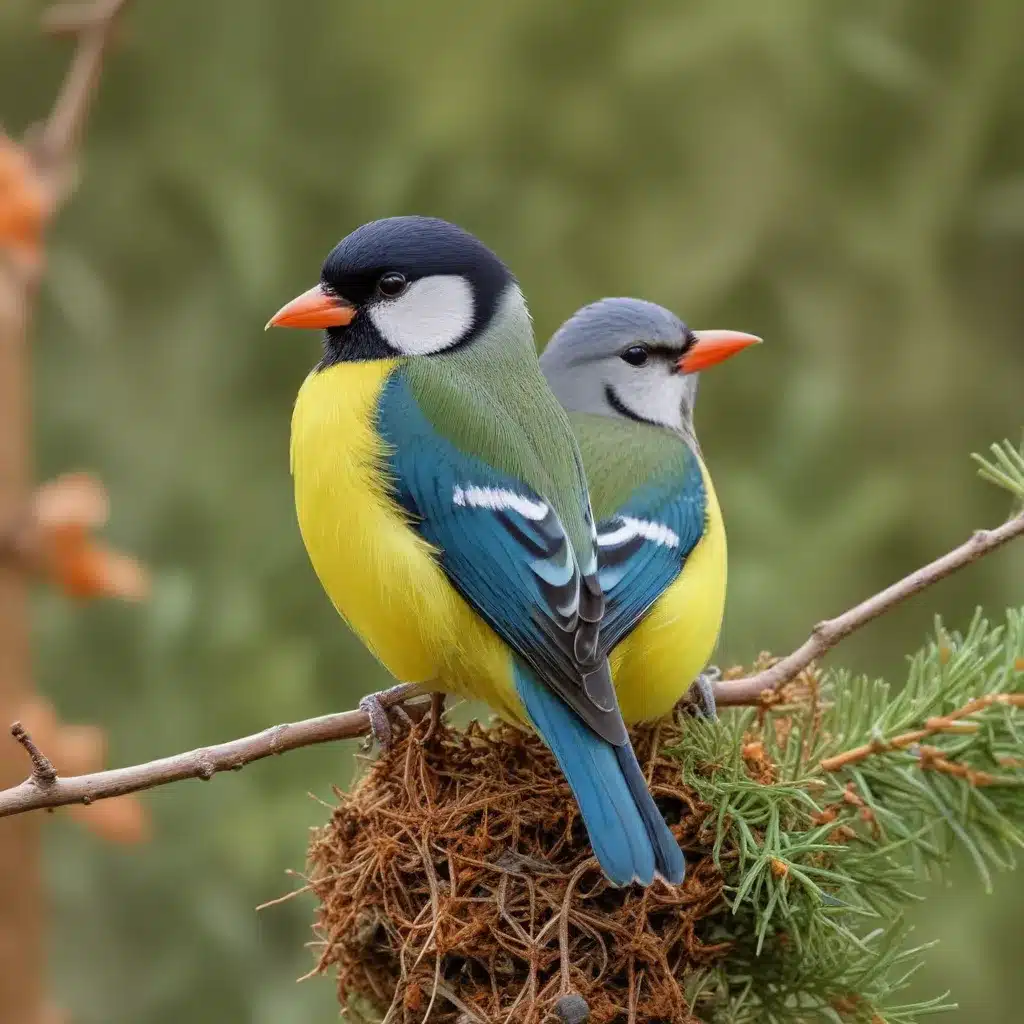
As an experienced avian caretaker and expert in the field, I understand the importance of providing birds with a balanced and tailored diet to support their overall health and well-being. Birds encompass a diverse range of species, each with their own unique dietary preferences and nutritional requirements. Whether you’re caring for seed-eating parrots, nectar-feeding hummingbirds, or insectivorous songbirds, navigating their nutritional needs is crucial for ensuring their longevity and thriving in captivity.
Unique Feeding Preferences
Seed-Eating Birds
Many popular pet bird species, such as parrots, cockatiels, and budgies, are primarily seed-eaters. These birds have evolved to thrive on a diet rich in a variety of seeds, nuts, and grains. While seeds provide essential calories and nutrients, they can also be high in fat and low in essential vitamins and minerals. To ensure a balanced diet, it’s important to supplement a seed-based diet with fresh fruits, vegetables, and specialized bird pellets.
Nectar-Feeding Birds
Hummingbirds and some species of lorikeets are known for their affinity for nectar-rich foods. These birds have specialized tongues and digestive systems adapted to extracting energy from the sugary nectar of flowers. Providing a high-quality nectar solution, either homemade or commercially available, is crucial for meeting their energy demands. Additionally, incorporating small amounts of protein-rich foods, such as mealworms or nectar-feeding bird mixes, can help fulfill their nutritional needs.
Insectivorous Birds
Insect-eating birds, including many songbirds and some parrot species, require a diet rich in protein to support their active lifestyles and breeding activities. These birds thrive on a varied diet of live insects, such as mealworms, crickets, and waxworms, as well as specialized insectivore diets and softened fruit. Ensuring a balanced ratio of protein, carbohydrates, and essential vitamins and minerals is crucial for the health and well-being of insectivorous birds.
Nutritional Needs
Macronutrient Requirements
Birds have unique macronutrient requirements compared to other pets. They generally require a diet higher in protein and fat, with a lower carbohydrate content. The specific ratios can vary depending on the species, age, and life stage of the bird. Understanding the appropriate macronutrient balance is essential for maintaining optimal body condition, energy levels, and overall health.
Micronutrient Essentials
In addition to macronutrients, birds also have specific micronutrient needs, including vitamins and minerals. These essential nutrients support a wide range of physiological functions, from feather growth and bone development to immune system function and reproductive health. Ensuring a diverse diet with supplementation, when necessary, can help meet these specialized micronutrient requirements.
Hydration Importance
Maintaining proper hydration is crucial for birds, as they can be susceptible to dehydration due to their high metabolic rate and active lifestyles. Providing clean, fresh water at all times is essential, and incorporating water-rich foods, such as fruits and vegetables, can also contribute to their overall hydration.
Feeders and Foraging
Feeder Types
Offering a variety of feeder types can encourage natural foraging behaviors and ensure that birds have access to their preferred food sources. Platform feeders, tube feeders, and suet feeders can all play a role in providing a diverse and engaging feeding experience for your feathered friends.
Foraging Behavior
Understanding the natural foraging behaviors of different bird species can help you create an enriching environment and meet their nutritional needs. Ground-feeding birds, such as sparrows and doves, may prefer to forage on the ground or in low-growing vegetation. Perching feeders cater to birds that prefer to feed from elevated positions, while aerial foragers, like hummingbirds, require easy access to nectar sources.
Seasonal Dietary Shifts
Spring and Summer Diets
During the breeding season, birds have increased nutritional demands to support their reproductive activities, such as egg-laying, incubation, and chick rearing. This often translates to a higher need for protein-rich foods to fuel these energy-intensive processes. Incorporating more insects, high-protein bird pellets, and nutrient-dense fruits and vegetables can help meet these seasonal dietary requirements.
Fall and Winter Diets
As the seasons change, birds may shift their dietary preferences to prepare for the colder months. Carbohydrate-rich foods, such as seeds and nuts, become more important for providing the necessary energy to maintain body temperature and undertake migratory journeys. Increasing the fat content in their diet can also help insulate birds and provide them with the caloric reserves they need to survive the winter.
Supplementary Feeding
Homemade Bird Treats
Offering a variety of homemade bird treats can not only provide nutritional benefits but also offer enrichment and encourage natural foraging behaviors. From seed and nut mixes to fruit-based nectar recipes, there are countless options for creating healthy and delightful snacks for your feathered friends.
Store-Bought Options
While homemade treats can be a fun and rewarding endeavor, there are also many high-quality, specialized bird foods available on the market. When selecting store-bought options, look for organic, sustainable, and species-appropriate choices that align with your birds’ unique dietary needs and preferences.
By understanding the diverse feeding preferences and specialized nutritional requirements of birds, you can effectively navigate the complex world of avian nutrition and ensure the long-term health and well-being of your feathered companions. Whether you’re caring for seed-eaters, nectar-feeders, or insectivores, tailoring their diets and providing enriching feeding opportunities can make all the difference. To learn more about our avian care services and products, be sure to visit the Mika Birds Farm website.


